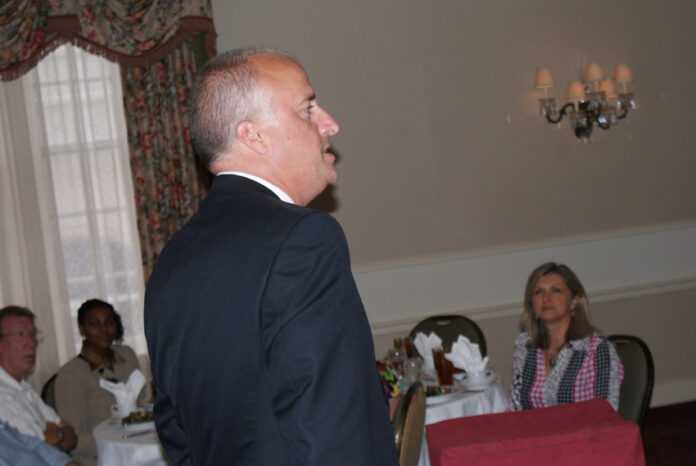
The Roanoke Valley Prevention Council is one of the leaders nationally in using grant money doled out by the Drug Free Communities program at the federal level. So says Jack W. Claypoole, who administers the program for the White House. Claypoole was keynote speaker during a program sponsored by the Prevention Council at Hotel Roanoke recently, entitled “Strengthening Virginia Communities: Best Practices and Environmental Strategies using the Drug-Free Community Support Program.”
The newly formed Community Coalitions of Virginia and the Dept. of Alcohol Beverage Control co-sponsored the one-day event, where groups from around the state came to swap success stories and pick up tips on how to further reduce youth drug and alcohol abuse in their hometowns. Local high schoolers involved with the Prevention Council and RAYSAC (Roanoke Area Youth Substance Abuse Coalition) program also took part.
A former law enforcement officer and director of a behavioral health center in South Carolina, Claypoole was appointed to his White House position in 2006 by then-drug czar John Walters. “We think its one of the best prevention efforts our nation has,” said Claypoole, who oversees the 800 Drug Free Communities grants currently in effect.
The Prevention Council must reapply every five years and was awarded a second grant in 2008. “Local problems need local solutions,” said Claypoole. “[These] grants are designed to bring the community together, identity the problems … that are unique to the community and then give the community a connection to the national strategy – and resources.”
Claypoole hailed the involvement of young people in the Prevention Council and RAYSAC programs. “Kids have to lead the way … otherwise we are totally in the dark.” While in Roanoke, Claypoole met with school and law enforcement leaders, and with Juvenile and Domestic Relations Court Judge Phil Trompeter. (As is customary, RAYSAC gave away a new car to a local high school senior on Sunday at Valley View Mall. A senior from each local high school, chosen from those who elected to attend after prom parties, was handed a set of keys to the vehicle. One key worked.)
When it comes to being effective it is more than just poster slogans. “The silver bullet is community involvement,” said Claypoole. Nationally, prescription drug abuse has taken center stage recently. “They are available in the household.” In some cases teens are attending real estate open houses with their parents, then looking in medicine cabinets for prescribed drugs, which can be dangerous when mixed.
Overall youth drug and alcohol use is down about 24% nationally in the last five years and where community coalitions have been funded tobacco, marijuana and alcohol use is reduced, according to Claypoole. “They are helping save kid’s lives at a faster rate.”
The Roanoke County Prevention Council, through periodic survey of middle and high school students, has detected downward trends when it comes to abusive substances, but it is always a battle and parents are constantly urged to get more involved. County high schools have set up sub-committees made up of students, counselors and teachers, designing programs that help discourage substance abuse.
Prevention Council coordinator Nancy Hans said representatives from 22 grant recipients statewide converged on Roanoke for the conference, which was a training session in part on environmental strategies: “what do we see in our communities that we could change, that we could do different, to make these healthier community norms … to [encourage] more positive behaviors. We can only do that as a community together.”


